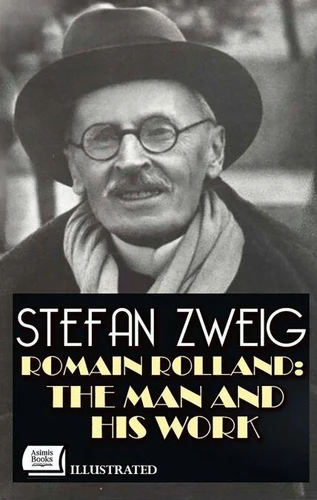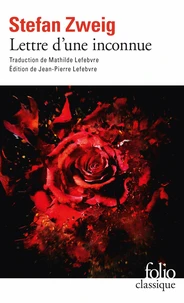In Romain Rolland: The Man and His Work, Stefan Zweig offers a profound and deeply personal portrait of one of the moral giants of early twentieth-century Europe. First published in 1921, this biographical study reflects Zweig's admiration for Romain Rolland, the French novelist, pacifist, and Nobel laureate whose ideals of humanism, tolerance, and intellectual independence resonated throughout a continent fractured by war.
Zweig approaches Rolland not as a distant scholar but as a fellow artist and kindred spirit.
He traces Rolland's evolution from historian and playwright to the author of the monumental Jean-Christophe, exploring how his commitment to truth and spiritual freedom shaped both his life and his art. Through Zweig's eloquent analysis, Rolland emerges as a man who stood "above the battle" - a voice of conscience amid the chaos of nationalism and hatred that consumed Europe during the First World War.
With characteristic empathy and psychological insight, Zweig reveals Rolland as both idealist and realist: a thinker devoted to harmony, yet acutely aware of human weakness and historical tragedy.
His prose conveys not only admiration but a shared yearning for a Europe united by culture rather than conflict - a vision both writers cherished and sought to defend.
More than a biography, Romain Rolland: The Man and His Work is an act of moral tribute - a dialogue between two humanists committed to the integrity of the individual spirit. In celebrating Rolland's courage and serenity, Zweig also affirms his own belief in art as a force for reconciliation and hope.
In Romain Rolland: The Man and His Work, Stefan Zweig offers a profound and deeply personal portrait of one of the moral giants of early twentieth-century Europe. First published in 1921, this biographical study reflects Zweig's admiration for Romain Rolland, the French novelist, pacifist, and Nobel laureate whose ideals of humanism, tolerance, and intellectual independence resonated throughout a continent fractured by war.
Zweig approaches Rolland not as a distant scholar but as a fellow artist and kindred spirit.
He traces Rolland's evolution from historian and playwright to the author of the monumental Jean-Christophe, exploring how his commitment to truth and spiritual freedom shaped both his life and his art. Through Zweig's eloquent analysis, Rolland emerges as a man who stood "above the battle" - a voice of conscience amid the chaos of nationalism and hatred that consumed Europe during the First World War.
With characteristic empathy and psychological insight, Zweig reveals Rolland as both idealist and realist: a thinker devoted to harmony, yet acutely aware of human weakness and historical tragedy.
His prose conveys not only admiration but a shared yearning for a Europe united by culture rather than conflict - a vision both writers cherished and sought to defend.
More than a biography, Romain Rolland: The Man and His Work is an act of moral tribute - a dialogue between two humanists committed to the integrity of the individual spirit. In celebrating Rolland's courage and serenity, Zweig also affirms his own belief in art as a force for reconciliation and hope.



















